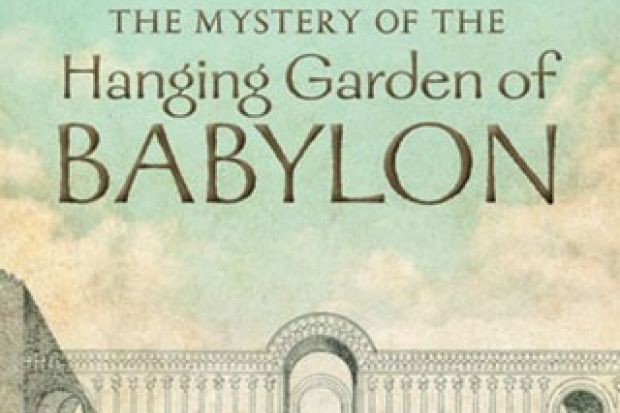James Stevens Curl, a member of the Royal Irish Academy, is reading Stephanie Dalley’s The Mystery of the Hanging Garden of Babylon: An Elusive World Wonder Traced (Oxford University Press, 2013). “This meticulously researched book reveals the truth about a Wonder of the Ancient World, an astonishing creation involving sophisticated hydraulics to create a garden so marvellous that it challenged God. Archaeological attempts to find a Babylonian site failed, because the Hanging Garden was at Nineveh. Assyrian engineering was highly advanced by the time of Sennacherib, who, as this splendid volume shows, was among the greatest garden-creators of all time.”

Stephen Halliday, panel tutor in history, Institute of Continuing Education, University of Cambridge, is reading Paul Levy’s G. E. Moore and the Cambridge Apostles (Holt, Rinehart & Winston, 1980). “An account of that group of Cambridge men (no women until 1970) that began with Tennyson, moved on through Keynes, Russell and Wittgenstein and achieved notoriety with the Cambridge spies. Their guru, the philosopher Moore, is the centrepiece of this intriguing account of a society that still debates such questions as ‘Are all martyrs voluptuaries?’ ”

Michael Reiss, pro-director for research and development and professor of science education, Institute of Education, University of London, is reading Jennifer Hartley’s Applied Theatre in Action: A Journey (Trentham, 2012). “Hartley, founder of the charity Theatre versus Oppression, uses theatre to tackle such issues as torture, domestic abuse and the problems faced by refugees. Unless you like being threatened, I would strongly advise you against travelling with her. Again and again she gets herself into seemingly impossible situations yet emerges, along with her amateur actors, the stronger for it.”

Peter J. Smith, reader in Renaissance literature, Nottingham Trent University, has just finished Nicholas Royle’s First Novel (Cape, 2013). “A brilliant, eerie mix of campus meta-novel, whodunnit, failed-love story and existential contemplation, Royle’s (seventh) novel is set between 1960s London’s poetry readings and cottaging, and the despondency of contemporary suburban Manchester. Paul Kinder, lecturer in creative writing, is an enthusiast of first novels (including his own), dogging and aeroplanes. His androgynous student, Grace, with ‘angry red marks on the insides of her forearms’, is his redemption and his undoing.”

Sharon Wheeler, senior lecturer in journalism, University of Portsmouth, is reading Ken McClure’s The Secret (Polygon, 2013). “You read this thriller writer for his impeccable science background, not the beauty of the characterisation or dialogue. His strength is research labs and spooky Victorian hospitals (let’s not even mention the one where the hero lands up hiding in a mortuary drawer with a corpse), rather than the well-trodden Afghanistan angle here.”

